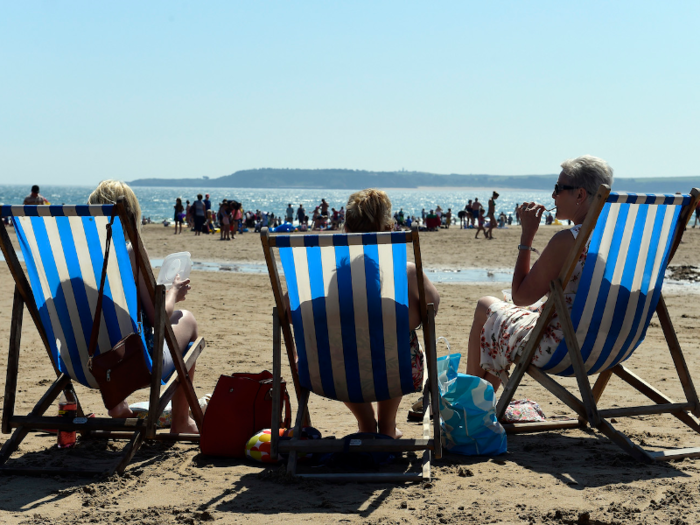
The biggest culture shock though, came when I entered the workforce. It's well documented that the American office culture is pretty different to the way we work back in the UK, in part fueled by the notion of the 'American Dream' — that unwavering belief that absolutely anyone can become successful if they're determined and willing to work hard enough to achieve their dream.
And it seems that an all-work-and-no-play mentality has bred a workplace that's underpinned by a sense of fear that you're never quite working hard enough. And nowhere is this quite as obvious, to me at least, as the American attitude towards vacation days.
In the UK, almost all full-time workers are legally entitled to at least 28 days of paid vacation per year. Most employers will include the eight Bank and public holidays into that figure, which leaves the average British worker with a minimum of 20 days of vacation to use.
At my previous job, I had 25 days' vacation, eight paid Bank holidays, a day off for my birthday, and the opportunity to buy an additional five days off. We worked hard. But we were given adequate time away from the office to rest, reset, and rejuvenate.
So you can imagine my horror when I was offered my first job here in the States and found out my paid time off was an accrued total of 10 days. A measly two weeks, which included both vacation and sick time. And the worst part was the employer seemed to think that was generous. They prefaced the section about PTO with, "we know how hard you work and recognize the importance of providing you with time for rest and relaxation."

To me, 10 days was a deal breaker. But I know I was lucky to have even been offered that.
According to a 2013 study by the Center for Economic Policy Research, the US is the only advanced economy in the world that doesn't mandate any paid vacation for the workforce. Almost one in four Americans have no paid vacations and no paid holidays.
And those who are blessed with time off average just ten days of paid vacation and about six paid holidays per year. That's less than the minimum legal standard for most of all of the world's richest economies — the exception being Japan, which guarantees 10 paid vacation days but no paid holidays, according to the study.
A survey by Glassdoor found that out of those who receive vacation days, only 24% of workers used their full allowance, in part due to a corporate culture that has come to view taking time off as slacking.
For many Americans, the fear of returning to a mountain of work keeps them at their desk instead of the beach. And in a world of "at will" employment, where the work contract can be terminated at any time, almost a quarter of American employees don't want to be seen as replaceable.

More hours doesn't always mean more output. Just take a look at Greece and Germany.
According to the Organisation for Co-Operation and Development (OECD) the Greeks work longer hours than any other country in Europe, have an unemployment rate of 23.5% and a GDP of 26 765 US$ per capita. In Germany, they work less hours but are much more productive, with a GDP of 48 943 US$ per capita and an unemployment rate of just 4.1%,
There are multiple studies that show taking time away from work can improve productivity, increase happiness, and spark creativity. In other words, taking time off is a win for everyone: you, your boss, and even the economy.
"If it's simply an issue of not knowing how to spend your time off, this list of well-reviewed places around the world may offer some inspiration. And if you're worried about returning to work with a mountain of emails to tackle, we've got some tips on managing that, too. Now you have no excuse.
 2 states where home prices are falling because there are too many houses and not enough buyers
2 states where home prices are falling because there are too many houses and not enough buyers US buys 81 Soviet-era combat aircraft from Russia's ally costing on average less than $20,000 each, report says
US buys 81 Soviet-era combat aircraft from Russia's ally costing on average less than $20,000 each, report says A couple accidentally shipped their cat in an Amazon return package. It arrived safely 6 days later, hundreds of miles away.
A couple accidentally shipped their cat in an Amazon return package. It arrived safely 6 days later, hundreds of miles away. 9 health benefits of drinking sugarcane juice in summer
9 health benefits of drinking sugarcane juice in summer
 10 benefits of incorporating almond oil into your daily diet
10 benefits of incorporating almond oil into your daily diet
 From heart health to detoxification: 10 reasons to eat beetroot
From heart health to detoxification: 10 reasons to eat beetroot

Copyright © 2024. Times Internet Limited. All rights reserved.For reprint rights. Times Syndication Service.